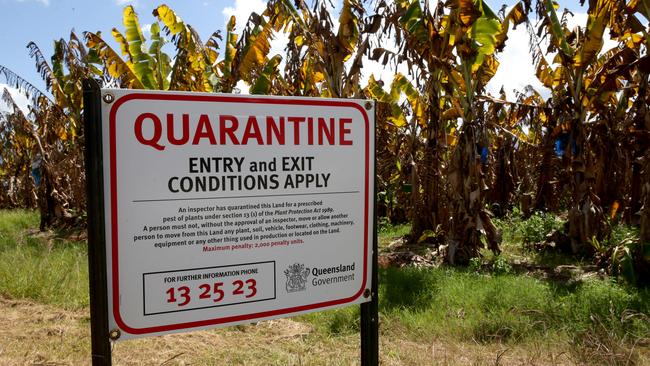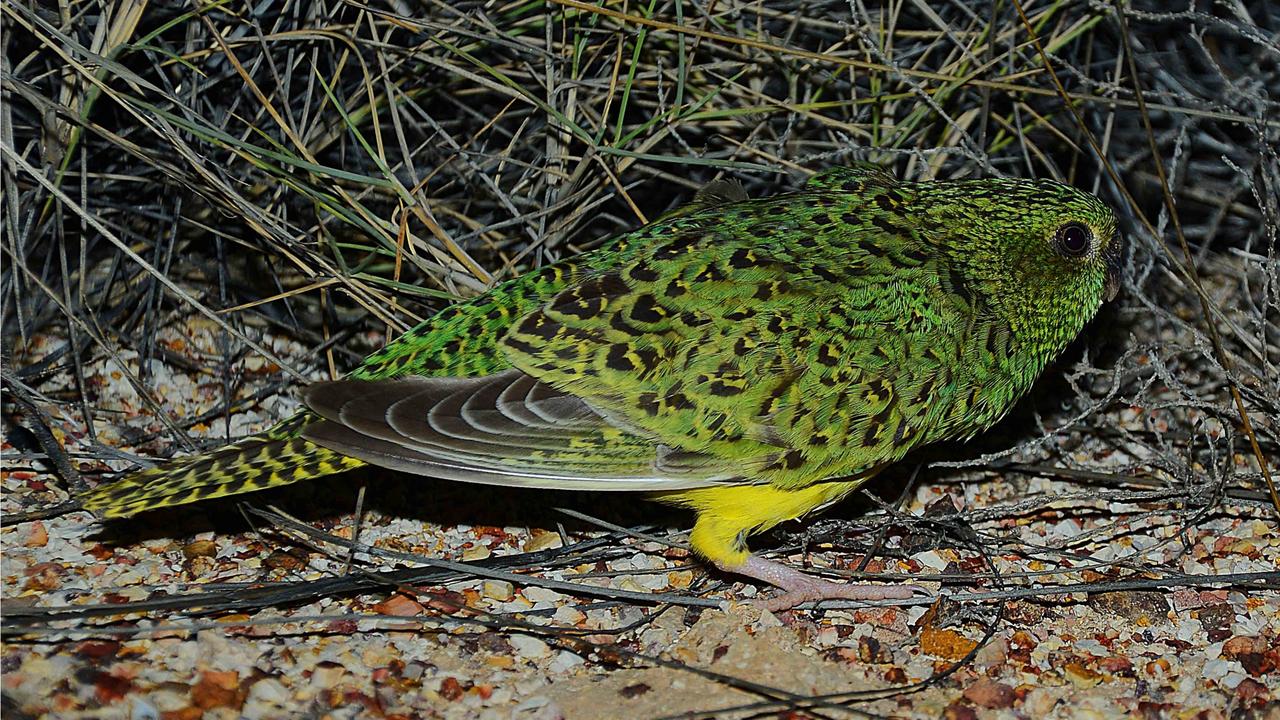Banana farm in lockdown after panama disease reoccurs
The Australian Banana Growers’ Council is confident the detection of the Panama virus on one Tully farm can be contained.

UPDATE: The Australian Banana Growers’ Council is confident the detection of the Panama virus on one Tully farm can be contained and has allayed fears that the tropical fruit’s production, taste, or quality would be affected.
“Australia’s number one fruit will remain unaffected by the latest on-farm disease detection,” a spokesperson from the association said in a statement today.
Biosecurity Queensland yesterday announced a suspect Panama TR4 detection on farm in Far North Queenlsnad and it will take between four to six weeks until a conclusive test result affirms it.
The chair of the national banana growers’ council, Stephen Lowe, said the pathogen impacted the plant and tree of the banana, not the fruit itself.
“What the pathogen does, is it enters the plant’s root system and restricts its uptake of water, stopping it from producing harvestable bunches and eventually killing it,” Mr Lowe said.
“(The) impact on-farm is the ability to grow that banana plant.”
This is the second instance of the Panama virus in Australia. The first was detected on another farm nearby in Tully in March 2015.
“Our consumers will still receive a healthy, delicious and nutritious product and will not be affected,” Mr Lowe said.
Overall, there are 12 banana diseases in the region, which include leaf, fruit and fungal/plant corm rot diseases, a spokesperson from Queensland’s agricultural ministry said.
It is the most devastating of all the diseases as it affects the Cavendish banana, which is the most common commercial variety.
The fungus blocks the plant’s vascular system preventing the uptake of water and nutrients, causing the plant to eventually wilt and die.
Ninety-five per cent of Australia’s commercial bananas are grown in Far North Queensland.
Earlier report: Banana farm in disease lockdown
A banana farm in far north Queensland has tested positive for panama disease and the chance of nearby properties being infected is likely, Queensland’s chief biosecurity officer, Jim Thompson, has warned.
It is the second recorded infestation of the fungal disease in Australia, with the first occurring at a nearby banana farm in the same area, Tully Valley, in March 2015.
The Australian understands a sole paddock at another Tully Valley farm has been infected with the disease again.
The property is in lockdown and under the direction of biosecurity authorities.
A sample of the infected soil had been sent off for further diagnostic testing and it will take between four and six weeks before a conclusive test result is confirmed. However, Dr Thompson told ABC Queensland radio yesterday he was “very confident” the testing was correct. “We’ve said all along that the chance of further properties getting panama disease is likely in the way it’s happened all around the world and we want to be proactive,” he said.
Panama disease tropical race 4 is a fungus that affects the health of a banana plant, which can stunt its ability to bear fruit.
“This is something we did expect to occur — a slow spread of the disease,” Dr Thompson said.
“The focus is to make sure (we) can control and contain as we’ve done before.”
He said the farm owners had already been proactive in instituting biosecurity measures following the Panama spread scare two years ago.
“At this stage, we are acting as though this will be positive and we’ll be issuing a notice to the property owners and working with the property owners to manage the risk of disease spread from the property.
“We act immediately (when) we’ve got a suspect property and people will become aware of that and we don’t want to hide the fact and the property owners don’t want to hide the fact — they’re very proactive property in terms of their biosecurity practices.’’
He said biosecurity practices in the industry had come a long way since the first detection.
“(We’re) way in front where we were before.”
Cassowary Coast Council Mayor John Kremastos said council would work closely with biosecurity authorities and Tully Valley growers to minimise any risk spread. “The banana industry is quite diverse — we produce the most bananas in Australia, the growers have contingency seeds and it shouldn’t affect overall production.”
The fruit is not affected by the disease as it only affects the roots of the banana plant.



To join the conversation, please log in. Don't have an account? Register
Join the conversation, you are commenting as Logout